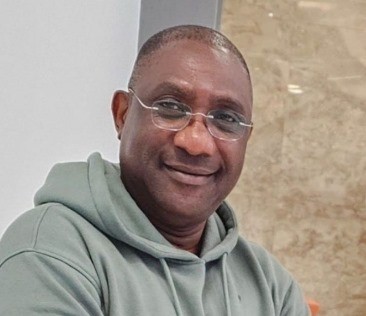– early investors, venture capital, and institutional partners
By Sammy CRABBE
No city thrives solely by laying roads and erecting towers. Cities that flourish in today’s world build investment ecosystems – networks of early investors, venture capitalists, institutional funds, accelerators, and innovation hubs that drive continuous growth.
The One Square Mile must not only be physically constructed; it must be financially cultivated. It must attract investors who bring not just capital, but also networks, expertise, credibility, and long-term commitment.
A smart city without a smart financial ecosystem is a castle built on sand. The goal of this funding phase is clear: build an investment ecosystem that is deep, strategic, and self-reinforcing.
The One Square Mile must be positioned not merely as a real estate development, but as an entrepreneurial platform. Investors must see that they are not buying into buildings – they are buying into Africa’s next digital economy hub. Early investors must be nurtured, venture capital attracted deliberately, and institutional capital engaged strategically. If the right financial foundations are laid, capital will not trickle into the city – it will flow.
Securing early anchor investors – Catalysts for momentum
Every transformative development begins with visionary early adopters. For the One Square Mile, securing early anchor investors is crucial not only for capital but for building credibility, attracting follow-on investment, and establishing brand momentum. These anchors could include smart city developers, tech venture funds, sovereign wealth funds, diaspora groups, and impact-driven private equity firms.
Structured, time-limited incentives should reward early participation – preferential lease terms, branding rights, tax benefits, and access to innovation programming. Yet these incentives must align with the city’s values, ensuring that investment drives inclusion, sustainability, and innovation rather than distorting the vision. Selecting investors who bring not just funding but aligned values and reputations is key. Done right, early backers become ambassadors and catalysts for momentum.
Attracting venture capital and startup funding
The One Square Mile’s Innovation Hub, fintech zone, smart health system, and green energy clusters will depend on continuous startup activity – which, in turn, depends on venture capital. Attracting VC must be an intentional effort. The One Square Mile Authority should host VC Roundtables in hubs like Accra, London, Silicon Valley, and Dubai to spotlight emerging opportunities.
A One Square Mile Innovation Fund could co-invest in local startups, de-risking early capital and anchoring a pipeline of innovation. Measures like preferential startup visas, simplified registration, and tax incentives for tech investors can further attract attention. Strategic partnerships with networks like AfricArena, VC4A, and ABAN will embed the One Square Mile into Africa’s venture ecosystem. The aim is to attract capital that grows entrepreneurs, not just bankrolls them.
Engaging institutional partners for long-term stability
While early investors ignite momentum, institutional players – pension funds, sovereign wealth funds, and DFIs – provide depth and stability. These partners seek governance, transparency, and long-term returns. Infrastructure projects – fibre networks, water treatment, transport, renewables – should be structured to attract such investors.
Long-term concessions, annuity models, and green bonds will appeal to risk-averse institutions. Transparent governance, audited financials, PPP frameworks, and real-time performance dashboards will further build trust. Ghana’s own pension funds should be mobilized first to create a domestic demonstration effect before engaging international players. When institutions invest, they bring not just capital, but discipline, reputation, and monitoring strength.
Creating the right investment vehicles
To align with different investor profiles, the One Square Mile must develop tailored investment vehicles. A Real Estate Investment Trust (REIT) would allow broad participation in the city’s real estate upside without direct ownership. An Infrastructure Debt Fund could attract fixed-income investors seeking stable, contract-backed returns.
A Social Impact Fund could draw capital into affordable housing, education, and community services, balancing social and financial outcomes. These vehicles must be transparent, globally marketed, and aligned with international best practices to ensure sustained investor confidence and long-term engagement.
Branding the investment opportunity
Beyond structuring deals, the city must actively brand itself as a compelling investment opportunity. This requires more than polished marketing – it demands credible storytelling: highlighting human stories, startup successes, and innovation milestones. Annual One Square Mile Investment Summits should convene investors, entrepreneurs, and global media to showcase momentum.
Presence at global investor events – such as the Africa Investment Forum, Abu Dhabi Sustainability Week, and CES – will ensure visibility. In doing so, the One Square Mile presents itself not just as an African innovation hub, but as a global magnet for capital.
Conclusion – From a city plan to a capital magnet
Thriving cities attract more than technology – they attract belief. By cultivating early investors, securing venture capital, engaging institutional partners, and designing inclusive investment vehicles, the One Square Mile can become a magnet for global capital. Like Singapore, Dubai, or Austin, it can evolve into a vibrant ecosystem where capital, talent, and innovation feed one another. The One Square Mile must not simply aim to be built – it must aim to become the most investable square mile in Africa, offering not just returns, but renewal and opportunity.
>>>the writer is a PhD researcher specializing in blockchains and decentralized finance at the University of Bradford. He holds an MBA in International Marketing and a post-graduate certificate is research from the International University of Monaco. Sammy was the first president of the Ghana Business Outsourcing Association and developed Africa’s first data entry operation and Ghana’s first medical transcription company. He can be reached via [email protected]










